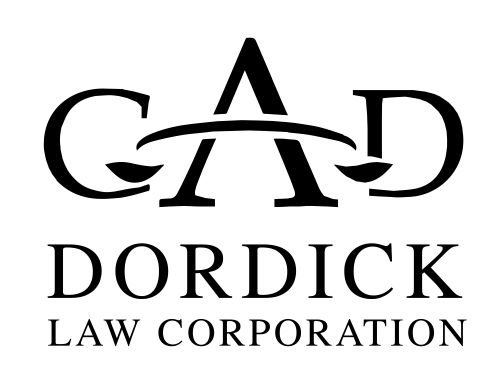Sponsor Spotlight - AAA TLC - Dr. Stephanie Marcy, PhD ABPP, Clinical Psychologist

Orthorexia Nervosa: The Unhealthy Side of Being Obsessed with Healthy Eating
Because of its temperate weather, abundance of mountain trails, ocean, and lakes, Southern Californians tends to be associated with the active, health-conscious, year-round outdoorsy stereotype. And, of course, the perfect setting for a triathlete. Unfortunately, with its connection to the glamour of Hollywood, there is also the darker stereotype of the focus on the superficial; flashy cars, expensive clothes, and the perfect body to fit into those expensive clothes. It is no secret that many of the famous, and wanna-be famous, have over-indulged in overindulgence, while also under-indulging in food to achieve the gaunt-chic body, leading to dangerous restrictive eating disorders. However, over the last several years, there has been a growing recognition of a stealth competitor to Anorexia Nervosa, an unofficial eating disorder masquerading as the picture of health, that can cause the same dangerous emotional, social, and even physical risks as Anorexia often without even being recognized. I am talking about “Orthorexia Nervosa.”
Coming from the Greek word “orthos” which means “right,” Orthorexia is another type of eating disorder that does not carry its own clinical diagnostic code (yet). It is, simply put, an unhealthy and excessive obsession with eating healthy, and can often co-exist with a devout commitment to exercise and conditioning. Rather than revolving around food quantity and weight loss, like Anorexia Nervosa, the Orthorexic is typically focused on the quality of food. “Bad foods” – like sugar, processed foods, GMOs are eliminated, and only “good foods” – like organic whole grains, pure natural ingredients are consumed. The Orthorexic may talk about “eating clean,” “cleanses” “ridding their diet of toxins,” or eating only “whole foods.” These behaviors are justified by athletes quite easily, and to many do not appear to be unhealthy or concerning, although they may be annoying and even shaming to those who do not take their health and diet so seriously.
So, how can being obsessed with eating healthy be dangerous? It turns out that Orthorexia can cause many of the same psychosocial impacts as a fully diagnosed clinical eating disorder, starting with the commonality of an unhealthy preoccupation with food and body. Other shared symptoms include: rigidity, obsessive-compulsive symptoms, body checking, body dysmorphia, eating/exercise rituals, excessive time commitment, irrational and extreme concerns, mood fluctuations, sleep disturbance, low self-esteem, social withdrawal, detachment from feelings, irritability, judgment of others, anxiety, “exercise addiction,” depression, exercise-induced injury, binge/purge episodes, and in extreme cases, malnutrition. There can be extreme guilt, fear, and shame associated with eating, as well as short-lived but intense “highs” stemming from pride and a sense of control when “bad foods” are resisted and “good foods” are consumed. Even better if eating with others where their choices can be scrutinized to make the Orthorexic person feel even more empowered in maintaining their rigidity and healthy choices. Intensive workouts and exercise can also sometimes become compensatory behaviors to decrease guilt and anxiety related to eating something “bad” and/or eating “too much” (Exercise Bulimia).
Like clinical restrictive eating disorders, Orthorexia can be insidious, starting off as making a few healthy changes. It is not unusual for someone with Orthorexia to have a history of being overweight, and perhaps being teased for their body size or eating habits as a child or adolescent. It can start with an initial commitment to health, which may include cutting out junk food, paying attention to nutrition, and becoming more active and athletic. For some this escalates into an obsession and addiction that takes over and becomes the main focus of every waking moment. For many, there is then also an intense fear of back-slipping – “I don’t want to ever look like that again” – which drives them to push forward with controlling what foods they will consume, sometimes coupled with intensive exercise, despite cues from their body that what they are doing is unhealthy. The regulating impact of this extreme level of control reinforces these behaviors and deviating from this cycle can cause significant anxiety and panic.
One factor for athletes specifically to consider is the similar level of extreme discipline required to be successful in food restriction and extreme physical training. Both require some degree of suppressing or ignoring the visceral cues one’s body gives them – whether it is a hunger cue, pain, or signs of excessive fatigue. This “skill” may be openly venerated by others – “I wish I could be as healthy/athletic/fit/skinny/cut as you” which only continues to reinforce the rigid behaviors as well as the prominence of this identity in their self-concept and sense of worth. This makes recovery increasingly difficult.
Given the potential psychosocial and medical risks, professional treatment may be necessary to treat the cognitive and behavioral aspects associated with Orthorexia. Interventions would include: challenging irrational and rigid beliefs, disentangling self-concept from food consumption and rigid behaviors, establishing self-acceptance and compassion, and ultimately re-establishing balance and a healthy relationship with food, one’s body, and one’s self.
by: Stephanie Marcy, PhD ABPP, Clinical Psychologist



